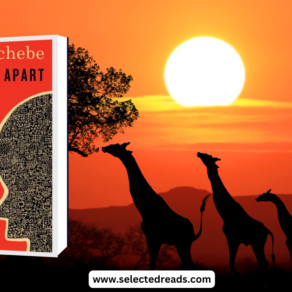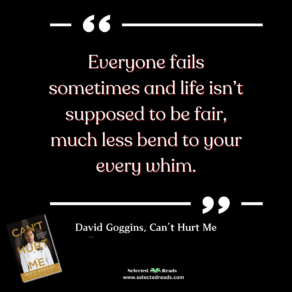“Things Fall Apart”, a remarkable and groundbreaking novel by Chinua Achebe, provides an insightful glimpse into the heart of pre-colonial African society. Set in the late 1800s in the Igbo village of Umuofia, this narrative orbits around the life of Okonkwo, a revered warrior whose world teeters on the brink of transformative change. As the village wrestles with the arrival of British colonial and religious forces, Okonkwo engages in a futile resistance against the demise of his cherished Igbo traditions. His despair intensifies as his community yields to the new, overpowering order.
While the novel underscores the tragedy of the loss of a world, it also broadens our understanding of our contemporary realities. Achebe’s unparalleled storytelling skill paints a vivid picture of African life, its nuanced societal structures, and its deeply rooted customs. The story is as much about the personal downfall of a man as it is about the larger picture of a society grappling with change and the erosion of its cultural values.
In this blog post, we will delve into some of the most profound quotes from “Things Fall Apart“, each encapsulating the essence and spirit of this enduring literary masterpiece. These quotes not only mark key moments in the narrative, but they also offer universal insights that remain relevant in our modern world.
Best Things Fall Apart Quotes
Here are some of the stand-out quotes from Things Fall Apart:
“The white man is very clever. He came quietly and peaceably with his religion. We were amused at his foolishness and allowed him to stay. Now he has won our brothers, and our clan can no longer act like one. He has put a knife on the things that held us together and we have fallen apart.” ― Chinua Achebe, Things Fall Apart
“If you don’t like my story,write your own” ― Chinua Achebe, Things Fall Apart
“There is no story that is not true, […] The world has no end, and what is good among one people is an abomination with others.” ― Chinua Achebe, Things Fall Apart
“Do not despair. I know you will not despair. You have a manly and a proud heart. A proud heart can survive a general failure because such a failure does not prick its pride. It is more difficult and more bitter when a man fails alone.” ― Chinua Achebe, Things Fall Apart
“A man who calls his kinsmen to a feast does not do so to save them from starving. They all have food in their own homes. When we gather together in the moonlit village ground it is not because of the moon. Every man can see it in his own compound. We come together because it is good for kinsmen to do so.” ― Chinua Achebe, Things Fall Apart
“A snake was never called by its name at night, because it would hear. It was called a string.” ― Chinua Achebe, Things Fall Apart
“When the moon is shining the cripple becomes hungry for a walk” ― Chinua Achebe, Things Fall Apart
“Among the Ibo the art of conversation is regarded very highly, and proverbs are the palm-oil with which words are eaten.” ― Chinua Achebe, Things Fall Apart
“You do not know me,’ said Tortoise. ‘I am a changed man. I have learned that a man who makes trouble for others makes trouble for himself.” ― Chinua Achebe, Things Fall Apart
“It always surprised him when he thought of it later that he did not sink under the load of despair.” ― Chinua Achebe, Things Fall Apart
“As our fathers said, you can tell a ripe corn by its look.”― Chinua Achebe, Things Fall Apart
“Age was respected among his people, but achievement was revered. As the elders said, if a child washed his hands he could eat with kings.” ― Chinua Achebe, Things Fall Apart
“The world has no end, and what is good among one people is an abomination with others.” ― Chinua Achebe, Things Fall Apart
“There was a saying in Umuofia that as a man danced so the drums were beaten for him.”― Chinua Achebe, Things Fall Apart
“When a man is at peace with his gods and ancestors, his harvest will be good or bad according to the strength of his arm.” ― Chinua Achebe, Things Fall Apart
“When mother-cow is chewing grass its young ones watch its mouth” ― Chinua Achebe , Things Fall Apart
“He saw himself and his fathers crowding round their ancestral shrine waiting in vain for worship and sacrifice and finding nothing but ashes of bygone days..” ― Chinua Achebe, Things Fall Apart
“Fortunately, among these people a man was judged according to his worth and not according to the worth of his father.” ― Chinua Achebe, Things Fall Apart
Final thoughts
Chinua Achebe’s “Things Fall Apart” stands as a literary landmark, capturing the collision of cultures and the struggle between continuity and change. Achebe’s tale of Okonkwo and the Igbo community’s confrontation with colonialism is a narrative rich in complexity and depth, illustrating the resilience of tradition against the tides of change. Through a tapestry of poignant quotes, Achebe offers a window into the soul of a society teetering on the precipice of irreversible transformation.
This novel goes beyond the story of Okonkwo’s personal tragedy to embody the universal human experience of upheaval and adaptation. It is a profound chronicle of the cultural dissonance that arises in the face of imperialism, and a resonant reminder of the enduring spirit of a people. As much a historical document as a work of fiction, “Things Fall Apart” is a reflective and enduring contribution to world literature, echoing the intricate interplay of fate, free will, and the inexorable march of history.











